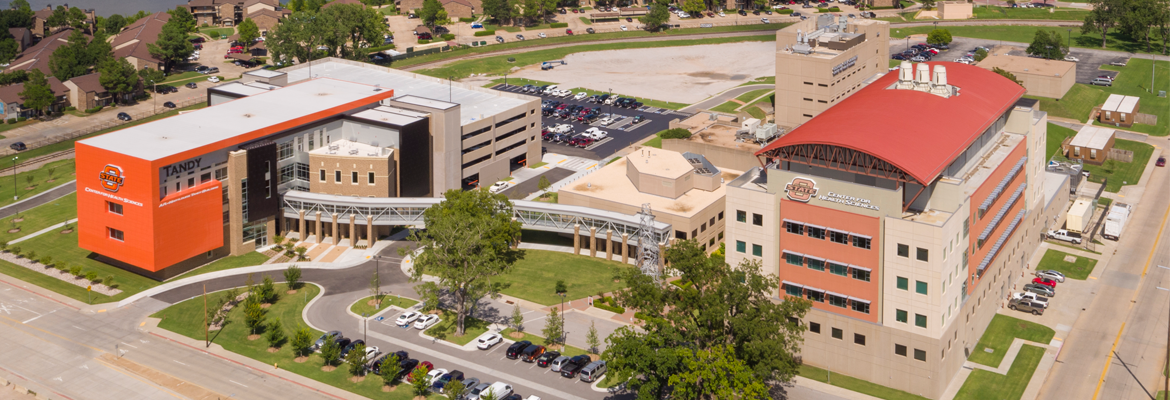
Curious Cowboys camp links crime-solving with math, science
Thursday, July 7, 2016
Bella Haley, 14, inked her fingers and pressed her prints on a standard fingerprint card with gusto.
“I am really interested in forensics so I am having fun in this camp,” said the eighth-grade homeschooler. “And I have always been good at science.”
She is one of 20 Tulsa-area teenagers who participated recently in ‘Curious Cowboys Solve a Crime: A CSI Summer Camp’ at OSU-CHS.
OSU-CHS partnered with the Tulsa Regional STEM Alliance (TRSA) to expose students to careers that utilize science, technology, engineering and math. It was the first camp produced through the partnership focused on forensic science. Career options in forensic science include crime scene investigators, toxicologists, DNA analysts, forensic psychologists and arson investigators, to name a few.
“This camp serves as the catalyst for fostering relationships with students interested in STEM careers, and ultimately we hope will encourage them to consider OSU-CHS as part of their educational pathway,” said Lindsey Yoder, camp coordinator and OSU-CHS outreach program specialist.
The week-long camp took the 7th-10th grade students on a journey through a mock investigation from a crime scene to the laboratory.
“We wanted the camp activities to progress in a manner identical to how a real crime scene would be investigated,” said Yoder, who has a master’s degree in forensic science.
The students first observed and obtained behavioral evidence and processed the mock crime scene by documenting, photographing and collecting evidence, she said. Campers learned about biology and toxicology testing, pyrotechnics, fingerprinting and ballistics. Finally, the students interpreted DNA to develop a genetic profile of the mock crime perpetrator.
Earlier in the week, the students extrapolated their own personal genetic profile using DNA swabbed from the inside of their cheeks.
On the last day of camp, Robert Allen, Ph.D., head of the School of Forensic Sciences, instructed the students on using mathematical equations to find out about their unique set of genetic markers and the probability of having them.
As Allen and Yoder wrote out the equations on the white board, one student said, “Math is not my thing. I like science.”
“Well, science is a lot about math,” Allen replied.
The conversation demonstrates the need for children to learn how math plays a key role in many careers, including forensic science, said Xan Black, program director for TRSA.
“Forensic science is fascinating to kids and presents a fantastic opportunity to show how math and science are integrally involved in the work of solving crimes,” she said. “It is an important message.”
